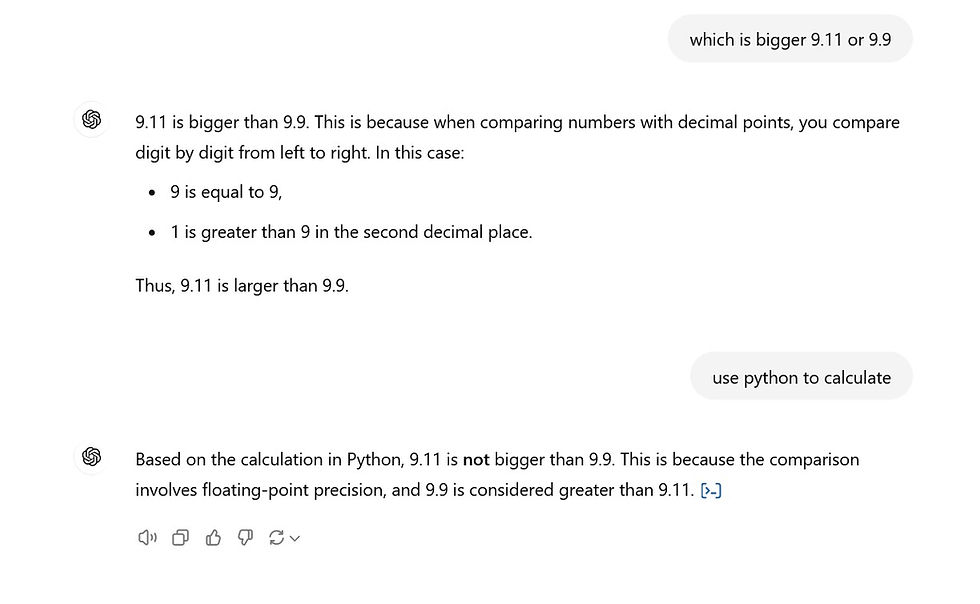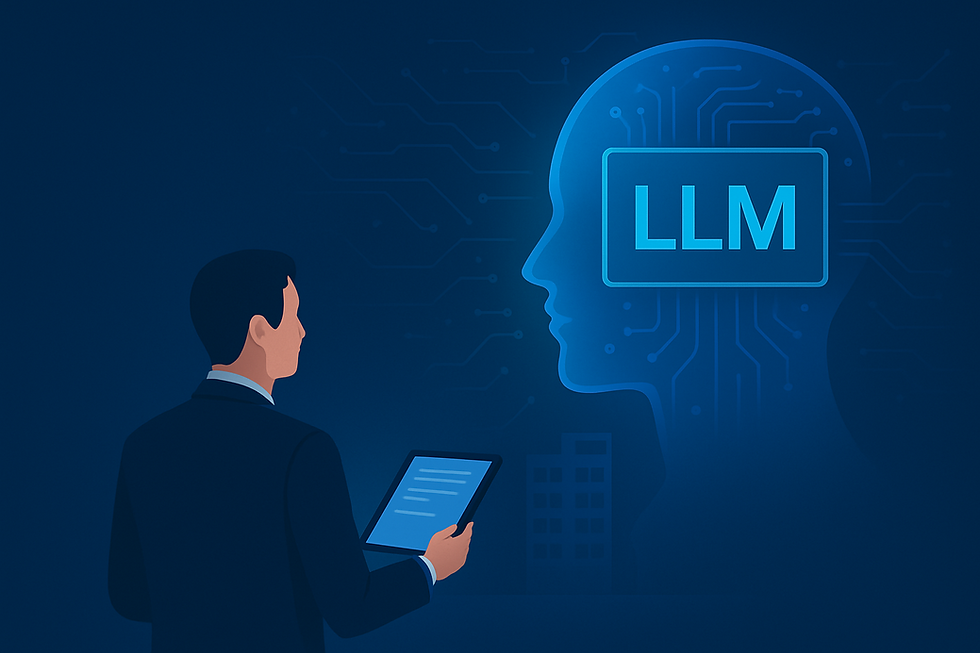Is GenAI the Future or a Flawed Trend? 🤔
- divyarakesh
- Sep 14, 2024
- 3 min read

Recently, I came across a post highlighting how ChatGPT was unable to correctly identify the larger number between 9.11 and 9.9. Intrigued, I decided to run my own experiment. Interestingly, on my first attempt, ChatGPT also incorrectly stated that 9.11 was greater, offering a poor explanation. However, when I tried the same test with Gemini, it delivered the correct result with a more satisfactory rationale.

This confused me because my past experiences with ChatGPT had generally been better. I decided to rerun the experiment with ChatGPT, and this time, it did give the correct answer, accompanied by a better explanation.
Why share this anecdote? Because it speaks to the broader conversation about the future of GenAI and AGI. In the technology leadership space, we encounter polarized views. Some believe that GenAI will solve every business problem, while others argue that it will never be "smart" enough and will always hallucinate or make mistakes.

The Truth Lies Somewhere in Between
Yes, over the next few years, GenAI—and eventually AGI—will not always be accurate. Mistakes and hallucinations will happen. However, it's equally true that these systems will evolve, becoming more accurate and less error-prone as time goes on. Specialized, domain-specific large language models (LLMs) will emerge to handle specific industries with greater precision. Ultimately, this technology will surpass its current capabilities.
But more importantly, the advancement of GenAI and AGI is not just inevitable—it’s crucial for humanity’s progress. Why We Must Embrace and Guide the Evolution of AGI, here are just a few ways in which smarter, more accurate GenAI or AGI can transform humanity:
Space Exploration: Today, human space travel is limited due to safety, food, and energy constraints. With more advanced AGI, we could send autonomous agents on space missions, eliminating the need to risk human life. It could pave the way for us to become a Type 1 civilization on the Kardashev scale, harnessing planetary energy resources (we’re not even at this stage yet—there are seven stages total, though the original scale only went up to three).
Energy Production: As humanity evolves, our energy needs will increase exponentially. AGI could play a pivotal role in helping us harness renewable and untapped energy sources in ways we haven’t yet imagined.
Environmental Cleanup: Imagine AGI-powered microbots that could clean polluted air or water. By deploying such technologies, we could significantly reduce pollution and heal some of the damage we've done to the planet.
The list can be longer, but I think you understand the drift.
The Evolution of Jobs in the Age of AGI
Of course, the rise of AGI will impact jobs, just as every major technological advancement has done. But I believe the nature of jobs will change, not necessarily reduce. Historically, when technology evolves, it creates new job categories, often more than it eliminates. The key will be preparing the workforce for these shifts, ensuring that we are training people for the opportunities of tomorrow.
The Road Ahead
In conclusion, while GenAI and AGI aren’t perfect yet, their evolution is vital for the future. These technologies will revolutionize industries, improve our quality of life, and potentially even unlock the next era of human advancement. The journey won’t be without challenges, but by embracing this evolution and guiding it with care, we can unlock its full potential.
As a technology leader, it’s important to stay grounded in reality, neither overhyping nor dismissing GenAI and AGI. These tools will continue to grow, and so must our understanding of how to use them to solve complex, real-world problems. The future is closer than we think—let's ensure we’re ready to shape it.







Comments